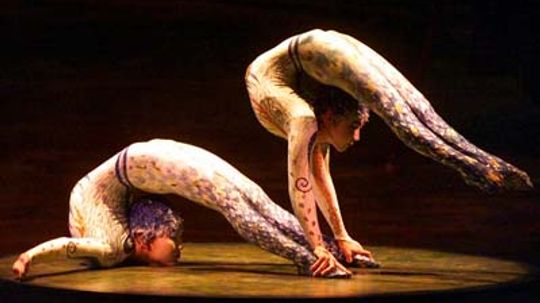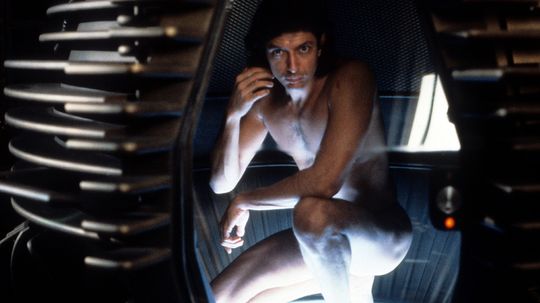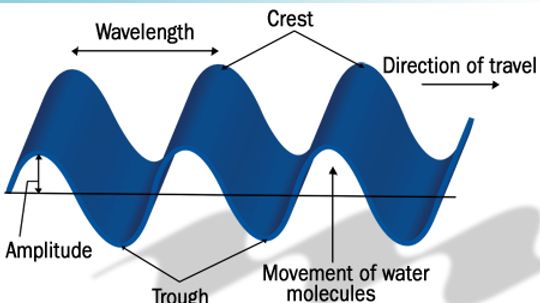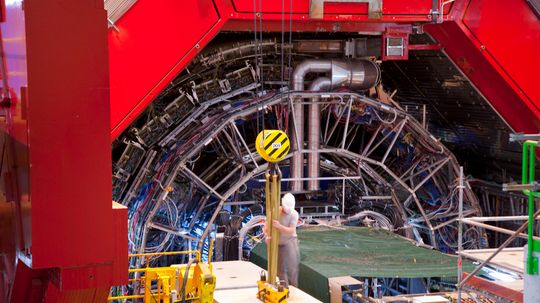Everyday Myths
There are certain aspects of everyday science that we think of as fact, but in reality may be pure urban legend. In this section, you can learn about some of the everyday science myths you may encounter.

Top 10 Ghost Tours
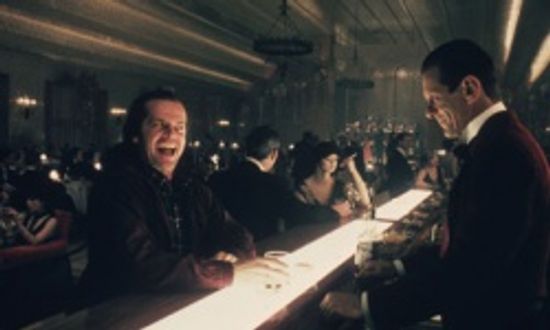
Top 10 Hotels That Will Scare the Daylights Out of You

What's So Scary About The Winchester House Story?

Spirit Guides Bring Believers Comfort, Insight, and Aid

Psychic Powers: Fun to Consider, Even Without Scientific Support

How to Manifest Love: Merging Mind and Heart

What Is a Group of Dragons Called? It's Almost Too Obvious

The Beast of Bray Road: Wisconsin's Claim to Cryptid Fame

Lougawou: A Haitian Vodou Werewolf

Do Marfa Lights Come From UFOs, Cars, the Military or Ghosts?

Solfeggio Frequencies: Healing Tones or Pseudoscience?

Is Sacred Geometry Related to Science or Is It Simply Beautiful?

What If Cows Didn't Exist?

What If Earth's Magnetic Field Flipped?

What If Humans Could Breathe Underwater?
Learn More / Page 3
Relativity is like a triple-scoop ice cream cone; most of us just can't gobble it down in one bite, not without experiencing some serious brain freeze. So let's take it one delicious relative scoop at a time.
By Robert Lamb
The world's intelligentsia has managed to convince us that the Earth is round and makes a full rotation once every 24 hours. Why can't they agree on the effects of that rotation on toilets and ball games?
Can you do creepy, bendy things with your fingers that freak out your friends? You might have been called double-jointed. What's really going on with those joints of yours?
By Tom Scheve
Advertisement
You know how when you're bored, time seems to move at a snail's pace, but when you're having fun it goes by all too quickly? Einstein called it time dilation.
By John Fuller
Surfer and physicist A. Garrett Lisi may have solved one of physics' greatest mysteries -- the theory of everything. It's a mathematical link to how the universe works.
By Josh Clark
The standard definition of floating was first recorded by Archimedes and goes something like this: An object in a fluid experiences an upward force equal to the weight of the fluid displaced by the object. So how does the water get displaced to keep a boat afloat?
By Yara Simón
You've heard the saying for ages, but exactly why is it so dangerous to go swimming right after you eat?
Advertisement
A CART race at Texas Motor Speedway was cancelled because the G-forces on the drivers were too high. How can you calculate the G-forces, and how do the cars generate forces that high?
Saturation diving hinges on the idea that the dissolved gases in our blood and body tissues match those in our lungs. This deep-sea exploration method allows divers to work at extreme depths without constantly surfacing. Learn how it works.
You may have noticed that we're all constantly traveling into the future. But what if you were interested in dancing through the fourth dimension more deftly than the next guy? How might you do that?
By Kevin Bonsor & Robert Lamb
Looking forward to instantaneous travel? The Star Trek teleporter is one step closer to reality. Scientists have now teleported a laser beam. Could humans be next?
By Kevin Bonsor & Robert Lamb
Advertisement
Ever wonder why we start our year on the first of January? Or why we have January and the other 11 months in the first place? Find out all about time.
If you were to fly west around the world, fast enough so that you crossed one time zone every hour, would you stand still in time?
At an intersection, you hear the pitch of the train's horn go up and then back down after the train has passed. Why?
You may have heard the tale of a person who throws a penny from the Empire State Building and kills a pedestrian below. Does this story have any truth to it?
Advertisement
You're talking with a group of people when, with no apparent warning, everyone stops talking. Is it just an awkward silence or a pregnant pause? Or is this silence something more?
When you're a kid, this frightening rumor burns through the playground like wildfire. After all, what could be worse than your own eyes exploding out of your head? But does it have any truth to it?
By Amy Hunter
Though they're indispensable to any construction project, nails have a nasty habit of getting hammered into thumbs and puncturing tires. Is a rusty nail even more dangerous?
To understand the universe better, scientists from all over the world are going to harness the power of an enormous machine -- the Large Hadron Collider.
Advertisement
Decades before you ever heard of the Higgs, this multinational particle physics lab was smashing its way to answers about how the universe worked. Pop inside CERN just as half of the world's particle physicists do every year.
There's actually an equation to figure it out!
A helium balloon rises because the helium is lighter than air. So how would a balloon -- made from a very sturdy but very lightweight material -- that had been removed of all air respond?
February is an unusual month, especially when it comes to leap years. In this article, you can read about why we use leap years and how the year 2000 was a leap year and 1900 was not.
By Sascha Bos
Advertisement
Special relativity deals in phenomena that don't agree with our historical or commonsense views of how the universe works. In fact, many of the theory's assertions almost appear ludicrous.
By John Zavisa
Remember that traffic accident you avoided the other day? In another universe, you died. Or at least you did according to the Many-Worlds theory.
By Josh Clark


